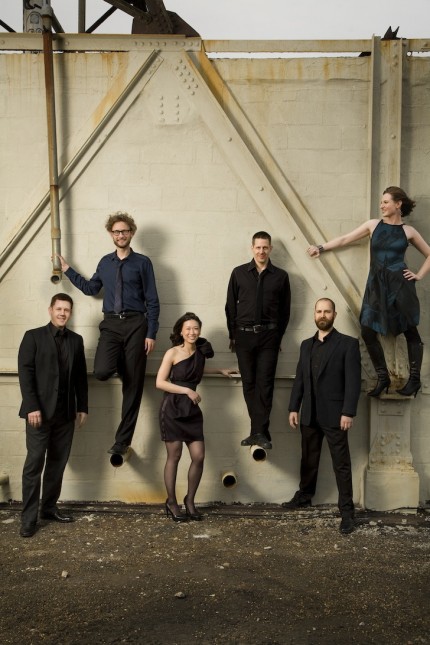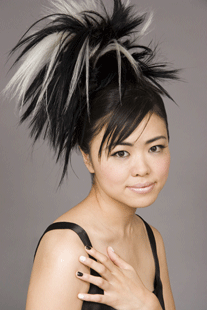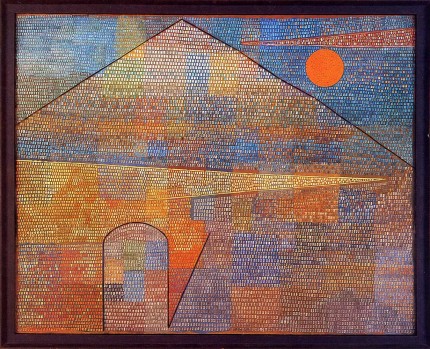Genre-crossing Contempo program serves up a dizzying musical mix

Piano tangos, the U.S. premiere of a Russian string quartet, two works new to Chicago — including one for chorus by Nico Muhly — and a celebrated Japanese jazz pianist.
It was another packed and dizzyingly eclectic Contempo program served up Tuesday night at the Harris Theater by the University of Chicago Presents series. Moderated by composer and artistic director Shulamit Ran, the evening flowed smoothly despite its wildly variegated elements and, while not all of the music was consistently inspired, there was no doubt about the commitment and dedication of the performers.
Amy Briggs led off the evening with a set of three neatly contrasted piano tangos, excerpts from her ambitious tango project and recording.
Ralph Shapey’s Tango Variations on a Cantus is vintage Shapey, spinning off an insistent left-hand rhythm into a characteristically rugged and sharp-edged drive. Conlon Nancarrow’s Tango? reflects the questioning title in its initial hesitant charm. The nervous right-hand figure segues into a jaunty counterpoint that grows increasingly hectic before returning to the fragmented opening, then closing in a sudden bravura burst. Fred Rzewski’s edgy and aggressive Steptangle requires the pianist to maintain the contrapuntal second voice with a ceaseless stamped foot (the foot — or heeled boot, in this case — has the last word). Briggs provided a characteristically vital and incisive performance.
The high point of the program was Nico Muhly’s How Soon? Co-commissioned by eighth blackbird and the Anima Young Singers of Greater Chicago, Muhly’s work was performed by those artists Tuesday in its Chicago premiere and the charmingly hyperactive composer was on hand to provide an introduction.
Scored for choir and chamber ensemble, the work sets the George Herbert poem, Mortification, which in true Metaphysical poet fashion, segues from thoughts of preparing for bed to sleep’s anticipation of death and an afterlife.
The music begins with a slow instrumental pulsing, the voices entering with a repetition of the first word of the text, “how” (“How soon doth man decay”). There is a fluent, surprisingly cheerful feel to the opening section until the line, “When boyes go first to bed, They step into their voluntarie graves.” Here the tempo slows and the expression turns darker and more ominous. Yet with the hopeful wish of life after death, the work ends with a thoughtful yet optimistic, glowing coda.
The prolific Muhly once again shows himself a gifted composer in a score that is smartly crafted, managing to be accessible without pandering. The music is consistently responsive to the deeper soundings of Herbert’s text and Muhly displays strikingly skillful writing for the voices and eighth blackbird’s mutable instrumental resources.
Directed by Emily Ellsworth, the youngsters of Anima sang with admirable clarity and sensitivity. The instrumental ensemble role yields somewhat to the vocal line in this work yet the gifted members of eighth blackbird provided their usual superb and sensitive advocacy.
Also heard Tuesday was music of Elena Firsova and Stephen Stucky,
Firsova’s String Quartet No. 4, subtitled Amoroso, was heard in its American premiere, Cast in a single movement, the work begins in a songlike mode as the four musicians enter one by one. The fragmented lines soon grow longer and more complex as Firsova alternates quasi-minimalist meditative sections with more impassioned, sharply accented passages.
The Pacifica Quartet supplied their usual brand of tonal gleam and dynamic nuance, particularly in the rarefied hush of the coda. Still, I can’t say that Firsova’s rather meandering single movement rises above its well-worn tropes. The highly contrasted dynamics at times suggest the style of Giya Kancheli, yet without the Georgian composer’s toughness or structural rigor.
Steven Stucky’s Ad Parnassum was also heard Tuesday. The title takes its inspiration from a painting of Paul Klee, and indeed, Stucky’s spare yet acutely colored score conveys something of Klee’s restless visual polyphony. The alarmingly versatile musicians of eighth blackbird provided Stuckey’s metamorphosing score with first-class advocacy.

As always with the genre-traversing Contempo programs, the second half was devoted to a jazz set, and Tuesday’s concert featured a trio led by the Japanese pianist Hiromi.
Jazz purists may blanche at Hiromi’s hipster garb and show-bizzy persona with her frequent capering about while standing at the piano. Yet she definitely has the chops as shown by her propulsive and firmly articulated keyboard solos, cleanly thrown off even at blazing tempos.
Yet she wasn’t always well served by the presentation Tuesday. The juiced-up amplification, whether by design or an artless mix, tended to favor the trio’s aggressive drummer Simon Philips who dominated the trio sections to such an extent that the subdued and imaginative contributions of bassist Anthony Jackson were often inaudible.
Posted in Performances





